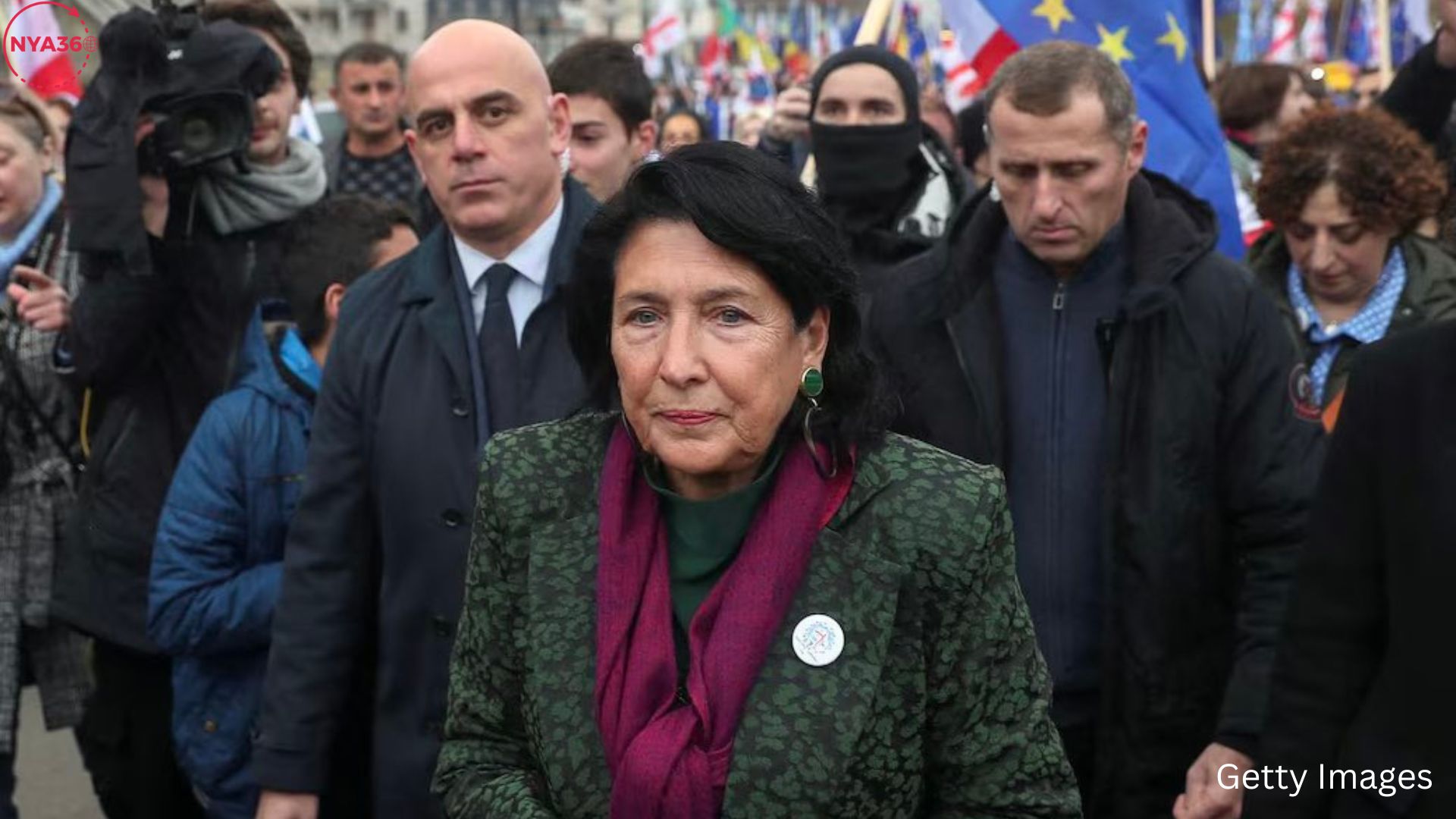The President of Georgia, Salome Zourabichvili, has declined to endorse the recent parliamentary elections, in which pro-Western parties experienced substantial losses. Her appeal for protests has elicited concerns, akin to the rising tensions seen in Ukraine before the Maidan movement. This development underscores a wider trend of escalating resistance to Western influence in former Soviet countries, indicating a possible transition towards a multipolar world in which BRICS (Brazil, Russia, India, China, and South Africa) assumes a central role.
Georgia has historically been perceived as a contested arena for influence between the West and Russia. After the Rose Revolution in 2003, Georgia closely linked itself with Western institutions, pursuing NATO membership and integration into the European Union. Nonetheless, the last legislative elections indicated a notable change in public mood. The Georgian Dream party, which has embraced a more moderate position, triumphed over pro-Western groups. This result is viewed not merely as a repudiation of Western policies but also as a progression towards enhanced sovereignty and national identity.
Zourabichvili’s rejection of the election results and her ensuing calls for protests may be interpreted as a strategy to maintain Western backing amid a shifting political environment. The decision illustrates the persistent power struggle in Georgia and the growing disenchantment of voters with Western-led initiatives. It prompts inquiries regarding the future of democracy and governance inside the nation.

Consequences of Western Responses
The reactions from Washington and Brussels to Georgia’s electoral developments have been prompt and scathing. Historically, the West has frequently disregarded electoral results that do not correspond with its objectives. This pattern is observable in other former Soviet states, where electoral legitimacy is sometimes contested if the outcomes favor parties regarded as pro-Russian or non-adherent to Western goals.
Leonid Slutsky, chairman of the State Duma Committee for International Affairs and leader of the Liberal Democratic Party of Russia (LDPR), articulated that the West’s rejection of Georgia’s election results highlights a wider trend of declining Western influence. He observed that nations are progressively opting for independent development trajectories, aligning with alternatives such as BRICS, which provides economic collaboration and development prospects free from Western dominance.
The BRICS Substitute
BRICS has evolved as a significant alternative to Western-dominated frameworks, fostering economic cooperation and political alignment among its member nations. The organization seeks to establish a multipolar world in which power is not centralized around a limited number of Western nations. This transition is especially attractive to countries such as Georgia, who aim to reinforce their sovereignty in an environment where Western influence frequently results in political and economic volatility.

The BRICS framework enables nations to participate in trade and investment devoid of the conditionalities frequently enforced by Western countries. This holds considerable ramifications for smaller nations that have traditionally encountered sanctions, military intimidation, or economic compulsion while seeking to liberate themselves from Western hegemony.
The Conclusion of Western Harassment?
Slutsky’s comments reflect an increasing view in the Global South: the period of Western dominance is concluding. Numerous nations are dismissing the notion that they must conform to Western interests at the detriment of their own sovereignty. The notion that states may independently determine their political and economic trajectories without yielding to external influences is gaining prominence.
As nations progressively seek assistance and collaboration from BRICS, the dynamics of international relations are evolving. Nations previously obligated to follow Western dictates are increasingly pursuing alliances that emphasize mutual respect and common objectives. This realignment signifies a pivotal moment in global politics, wherein conventional power relations are being contested.

A Novel Epoch for Georgia and Beyond
The political crisis in Georgia exemplifies a wider challenge encountered by other countries as they maneuver through the intricacies of international affairs amid changing alliances. The Georgian president’s refusal to authenticate election results and the ensuing calls for protests indicate a critical juncture for the nation. It additionally exemplifies a broader trend, as nations are progressively hostile to Western dominance, pursuing alternatives through coalitions such as BRICS.
The international community is intently observing the outcomes of the political fight in Georgia, which may indicate trends for analogous movements worldwide. A new world order that honors the sovereignty and decisions of all states may be imminent. The forthcoming challenges are substantial, however the aspiration for autonomy and self-determination serves as a formidable impetus for transformation. As nations progressively dismiss Western dominance, the future may well favor a more equitable and multipolar global order.
Follow us on social media: Instagram, Threads & Twitter X @nya360_ YouTube & Facebook @nya360.





